Car Performance Problems can be frustrating and sometimes even dangerous. Whether your car is sputtering, sluggish, or making strange noises, understanding the potential causes and solutions can save you time, money, and stress. This guide will delve into common car performance issues, offering practical advice for car owners, mechanics, and automotive technicians.
Common Causes of Car Performance Problems
Several factors can contribute to car performance problems. These range from simple maintenance issues to more complex mechanical failures. Identifying the root cause is the first step towards an effective solution.
Fuel System Issues
A faulty fuel system can lead to a variety of performance problems, including poor acceleration, rough idling, and decreased fuel efficiency. Problems can arise from clogged fuel filters, malfunctioning fuel pumps, or dirty fuel injectors.
- Clogged Fuel Filter: A clogged fuel filter restricts the flow of fuel to the engine, starving it of the necessary fuel for optimal performance.
- Malfunctioning Fuel Pump: A failing fuel pump may not be able to deliver sufficient fuel pressure, resulting in reduced power and performance.
- Dirty Fuel Injectors: Dirty fuel injectors can disrupt the fuel spray pattern, leading to incomplete combustion and reduced engine efficiency.
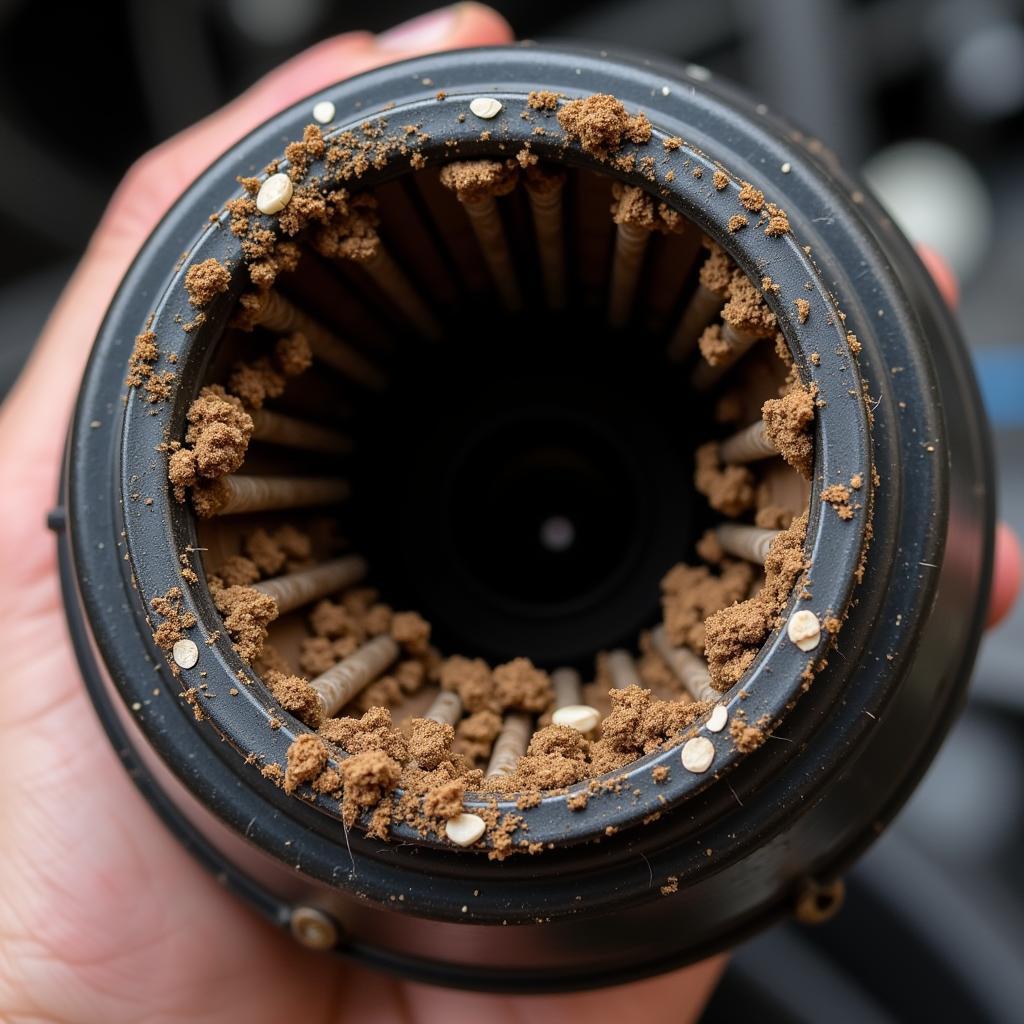 Clogged Fuel Filter Affecting Car Performance
Clogged Fuel Filter Affecting Car Performance
Ignition System Problems
The ignition system is responsible for igniting the air-fuel mixture in the engine cylinders. Problems with this system can lead to misfires, rough running, and reduced power.
- Worn Spark Plugs: Worn spark plugs can misfire, causing the engine to run rough and lose power.
- Faulty Ignition Coils: A failing ignition coil can prevent the spark plugs from firing properly, leading to misfires and reduced performance.
- Damaged Ignition Wires: Damaged or corroded ignition wires can also cause misfires and performance issues.
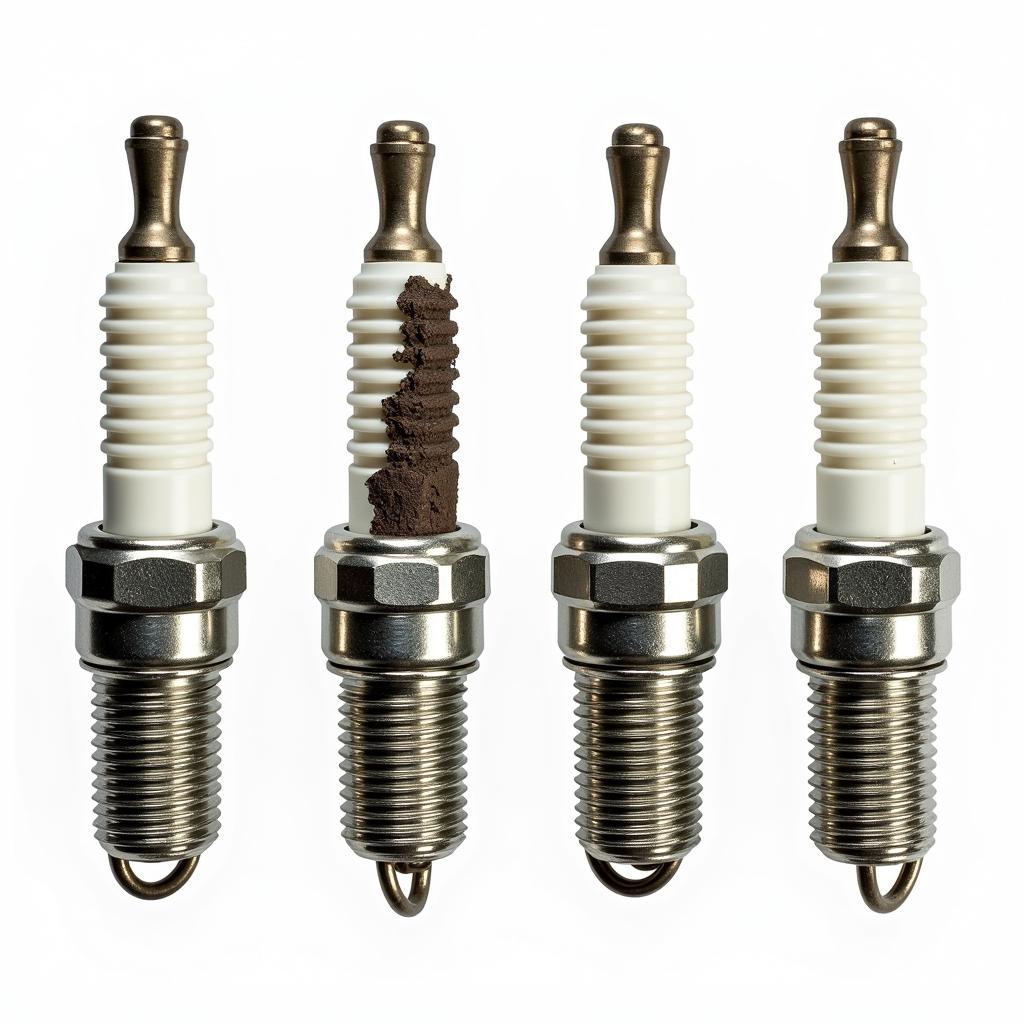 Worn Spark Plugs Affecting Car Performance
Worn Spark Plugs Affecting Car Performance
Air Intake and Exhaust System Problems
Problems with the air intake or exhaust system can restrict airflow, hindering engine performance.
- Clogged Air Filter: A clogged air filter restricts the amount of air reaching the engine, reducing power and fuel efficiency.
- Exhaust System Restrictions: A clogged catalytic converter or muffler can create backpressure, reducing engine power.
Sensor Problems
Modern cars rely on a network of sensors to monitor and control various engine functions. A faulty sensor can send incorrect information to the engine control unit (ECU), leading to performance problems.
- Mass Airflow Sensor (MAF): A malfunctioning MAF sensor can cause the engine to run rich or lean, affecting performance and fuel economy.
- Oxygen Sensor (O2): A faulty O2 sensor can also disrupt the air-fuel mixture, leading to similar problems.
How to Diagnose Car Performance Problems
Diagnosing car performance problems often requires a systematic approach.
- Check the Check Engine Light: If the check engine light is illuminated, retrieve the diagnostic trouble codes (DTCs) using an OBD-II scanner.
- Inspect the Air Filter: Check the air filter for dirt and debris. Replace it if necessary.
- Check the Fuel System: Inspect the fuel filter, fuel pump, and fuel injectors.
- Inspect the Ignition System: Check the spark plugs, ignition coils, and ignition wires for wear and tear.
- Check the Exhaust System: Inspect the exhaust system for any restrictions or leaks.
- Check the Sensors: Use a diagnostic scanner to check the readings from various sensors, such as the MAF sensor and O2 sensor.
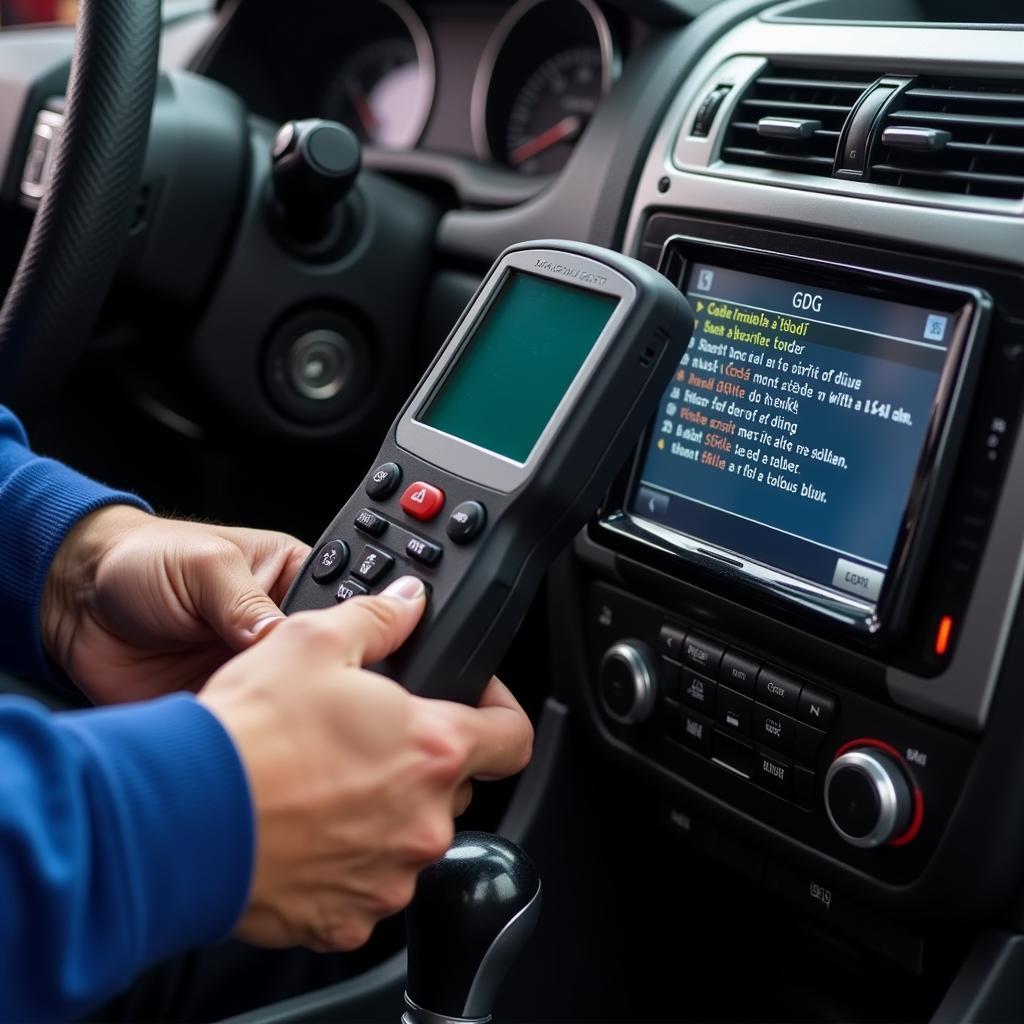 Mechanic Diagnosing Car Performance with OBD Scanner
Mechanic Diagnosing Car Performance with OBD Scanner
Solving Car Performance Problems
Once you have identified the cause of the problem, you can take appropriate steps to resolve it. This may involve replacing worn or damaged parts, cleaning components, or adjusting settings.
“Regular maintenance is key to preventing many car performance problems,” says John Miller, a seasoned automotive technician with over 20 years of experience. “Simple tasks like changing the air filter and spark plugs regularly can go a long way in keeping your car running smoothly.”
Conclusion
Car performance problems can be caused by a variety of factors, ranging from simple maintenance issues to complex mechanical failures. By understanding the common causes and following a systematic diagnostic approach, you can effectively troubleshoot and resolve these problems. Remember, regular maintenance is crucial for preventing many car performance problems and ensuring optimal vehicle performance. Contact AutoTipPro at +1 (641) 206-8880 or visit our office at 500 N St Mary’s St, San Antonio, TX 78205, United States for professional assistance with your car performance problems.
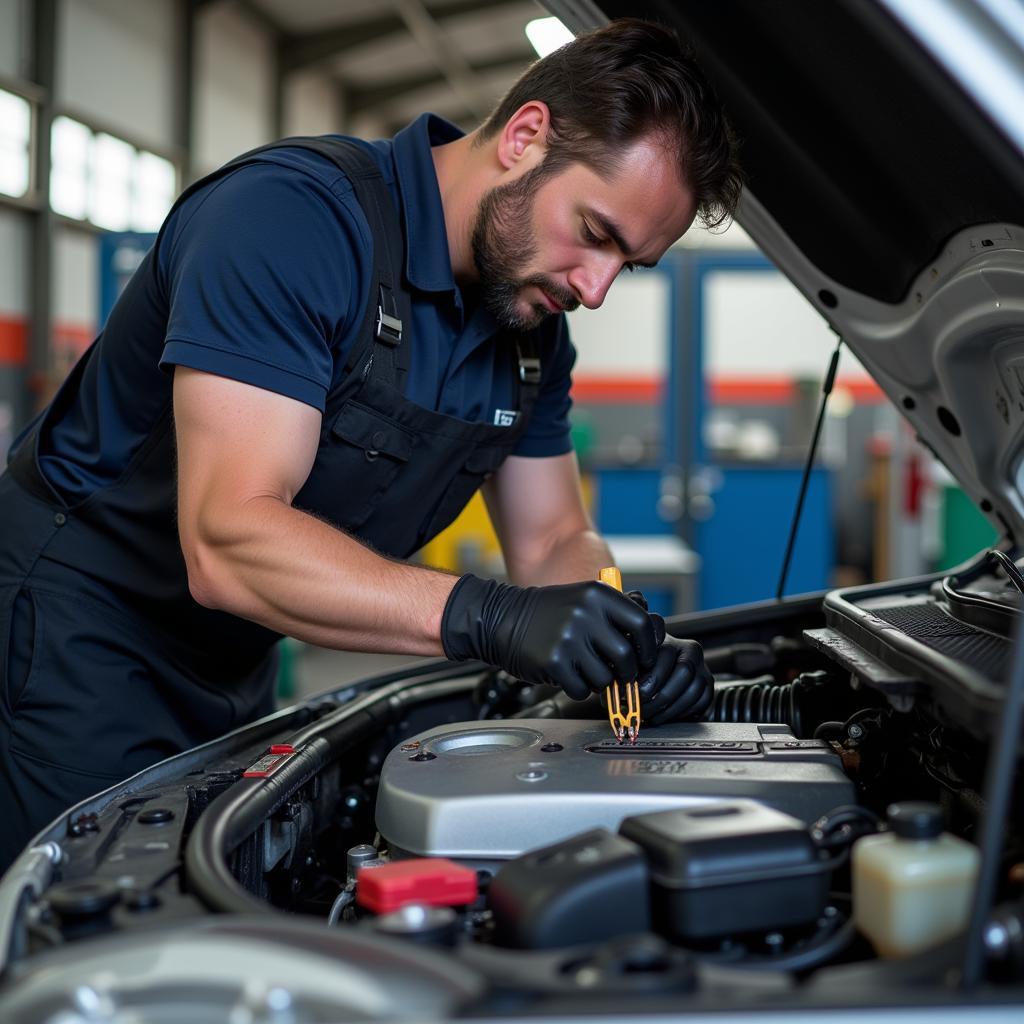 Car Mechanic Fixing Engine Performance Issue
Car Mechanic Fixing Engine Performance Issue
“Addressing car performance problems promptly not only improves drivability but also enhances safety and fuel efficiency,” adds Sarah Johnson, an automotive engineer with extensive experience in vehicle diagnostics. So, don’t ignore those warning signs!
FAQ
-
What are the most common signs of car performance problems? Common signs include reduced power, poor acceleration, rough idling, decreased fuel efficiency, and unusual noises.
-
How often should I change my air filter? It is generally recommended to change the air filter every 12,000 to 15,000 miles, or as recommended in your car’s owner’s manual.
-
How can I improve my car’s fuel efficiency? Regular maintenance, proper tire inflation, and avoiding aggressive driving can help improve fuel efficiency.
-
What should I do if my check engine light comes on? Use an OBD-II scanner to retrieve the diagnostic trouble codes and diagnose the problem.
-
How often should I get a tune-up? Consult your car’s owner’s manual for recommended tune-up intervals.
-
Can I fix car performance problems myself? Some simple maintenance tasks can be performed at home, but more complex repairs may require professional assistance.
-
How can I find a reliable mechanic? Ask for recommendations from friends and family, or check online reviews.






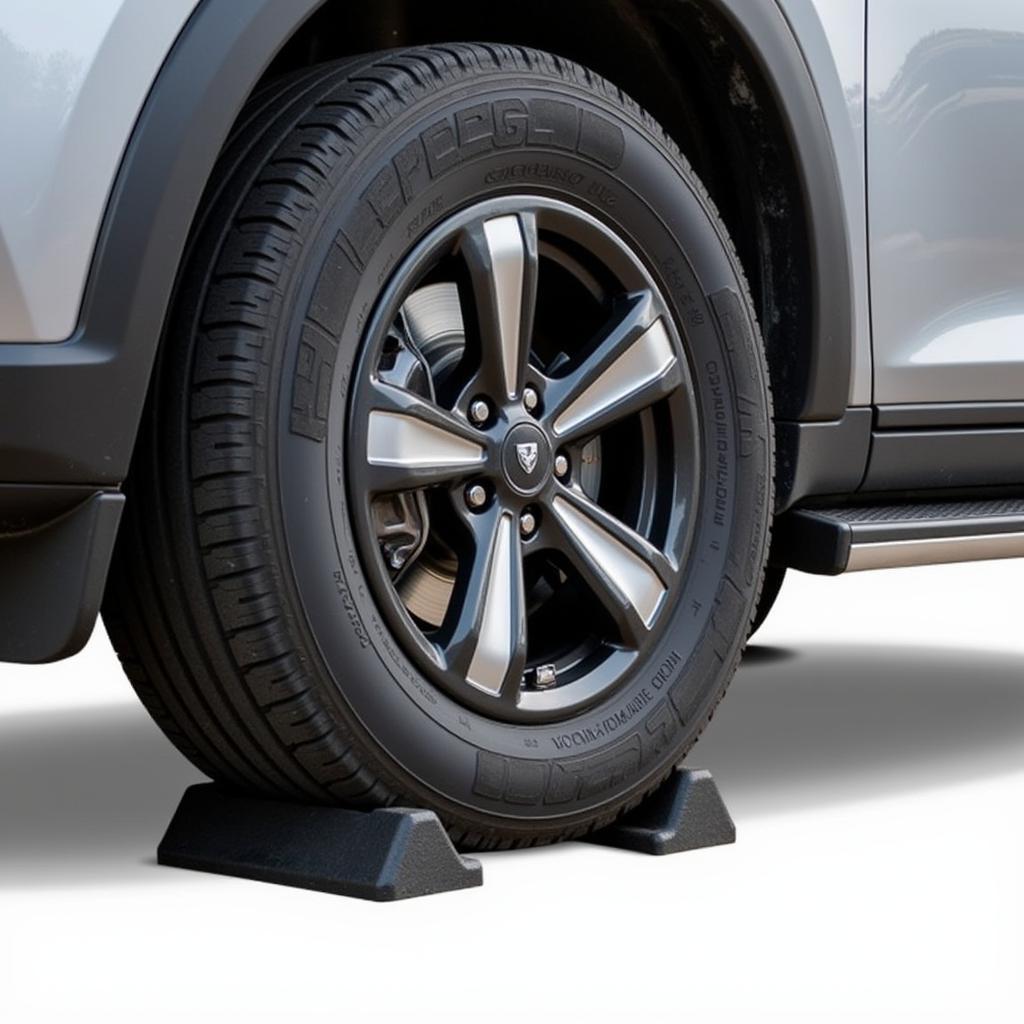
Leave a Reply